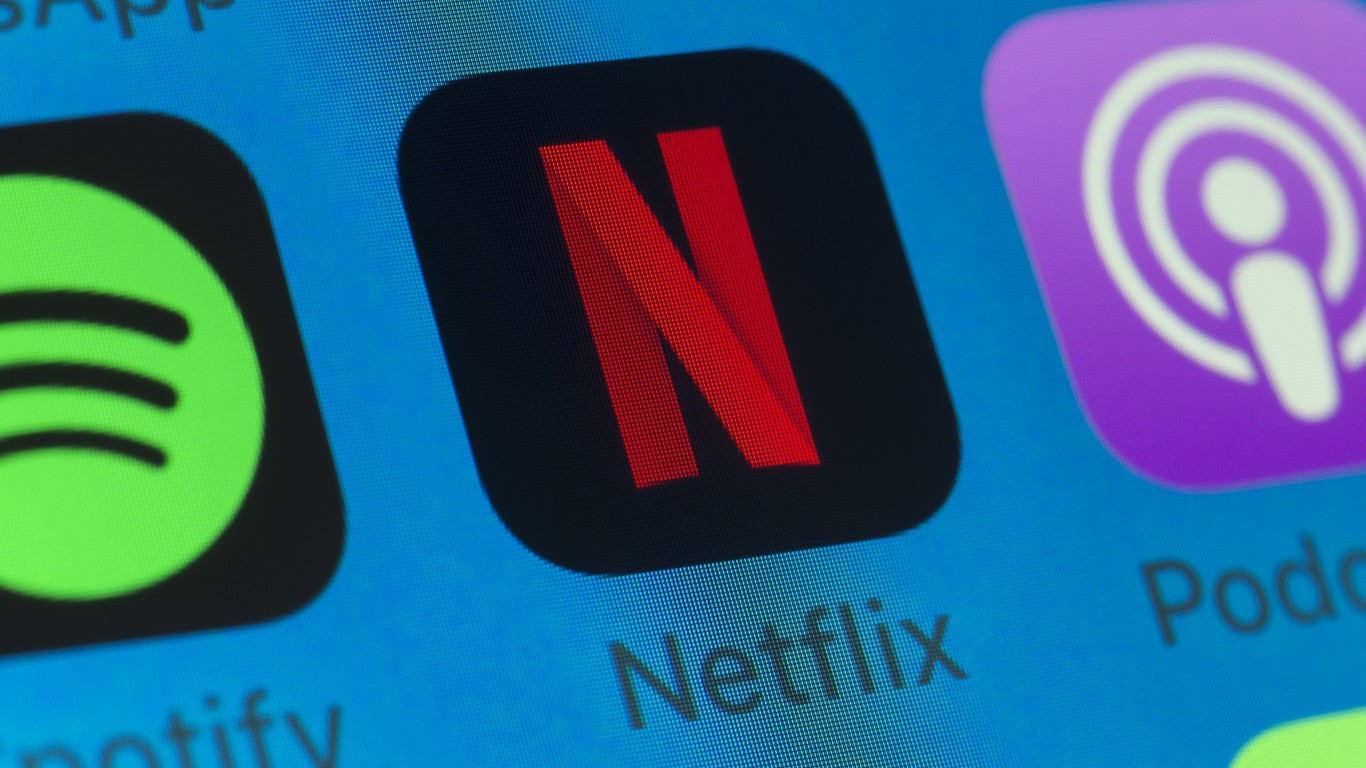Technology
What's Up With Apple: Kneecapping Netflix, Silicon Stories and More

Published:

Last Tuesday, Netflix rolled out its new video gaming service — for Android. The version for the Apple Inc. (NASDAQ: AAPL) App Store is planned. What?
According to Mark Gurman’s Power On newsletter, the Android app available at the Google Play store allows people to install games individually and runs them as stand-alone apps. Netflix is expected to move to a gamer-preferred all-in-one service Gamers, much like those from Microsoft Cloud Gaming, Nvidia GeForce Now and Google Stadia. But only for Android devices.
Apple’s App Store rules “don’t allow third-parties to build all-in-on gaming service apps.” Gurman explains: “To access the well over a billion iPhone and iPad users, developers have had to release their services on the web, which is a far subpar experience to native software.”
Apple’s rules do permit Netflix to launch their games through the Netflix iOS app, but not all of them will be downloadable and playable within the app. Gurman noted: “This approach is a solution, but not one that will put Netflix’s gaming service in the best position to succeed. Consumers tend to prefer all-in-one services.” This is how the service will start out on Android, but the switch to a cloud-based service is not far behind. Except at the App Store:
To be a true all-in-one service on iOS, Netflix will have to make its move to the cloud—and Apple will need to change its rules or grant Netflix an exemption. That leaves the ultimate success of Netflix’s service in the hands of Apple, a longtime partner but also a growing rival.
Apple’s M1, M1 Pro and M1 Max have received high praise from reviewers and users alike. But not universal praise. It appears that the chip designs use a unified memory structure that sometimes allocates already-used portions of the processors’ memory to a new request before releasing the memory space. This situation is commonly known as a memory leak.
Memory leaks can slow down a running application or, in some cases, cause the computer to lock up, forcing a restart. Macworld’s Michael Simon has the details.
Citing a report from The Information ($), Ars Technica reports that Apple has finalized the designs for a second generation of its new family of chips and that a third generation is expected. Like the first-gen M1s, the second generation is expected to be built using the 5-nanometer (5nm) process. The third-generation chips are expected to use a 3nm process that packs even more transistors on a single chip.
According to Ars Technica, The Information’s report speculates that Intel, which has been displaced as Apple’s supplier, may bid for Apple’s fabrication business or try to come up with a new and better chip design. Intel released a new roadmap and new naming convention in July.
Briefly noted:
Crime never sleeps. AppleInsider has a roundup of some recent crimes involving Apple gear. One was a theft of 56 boxes of AirPods that the thieves were trying to sell on Facebook Marketplace.
Speaking of the company formerly known as Facebook, the New York Times reported last Friday that before the metaverse becomes fully virtual, it will first need to build some brick-and-mortar stores. Is this the beginning of payback time?
 24/7 Wall St.
24/7 Wall St.
Thank you for reading! Have some feedback for us?
Contact the 24/7 Wall St. editorial team.